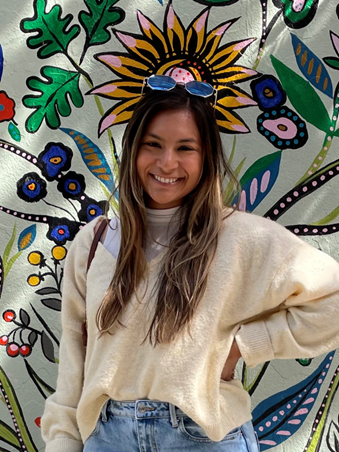As a Professor for TESOL, I am immensely proud to feature outstanding student work from our MS in Teaching English to Speakers of Other Languages (TESOL) Program. New York’s linguistic diversity demands teachers who can find common ground and effectively communicate with students from different language backgrounds. Academically rigorous and practice-intensive, the 33-credit program includes 50 hours of fieldwork and supervised student teaching experiences. Candidates that complete all coursework, fieldwork, and student teaching requirements are eligible for recommendation for ESL certification.
Alexandria Galvez is a first-year teacher leading a bilingual 1st-grade classroom. She is glad to have the opportunity to work with English Language Learners and finds herself learning from them every day. Her time at Touro has been marked by the acquisition of valuable knowledge regarding effective strategies for classroom use. Her favorite quote: “The capacity to learn is a gift; the ability to learn is a skill; the willingness to learn is choice.” -Brian Herbert
Differentiated Instructional Activity Assignment
In this assignment, teachers of English Language Learners (ELL) or Multilingual Learners (ML) will explore and implement differentiated instructional activities to maximize the learning of every student in their class. Using the provided Tools for High-Quality Differentiated Instruction: An ASCD Action Tool, teachers will modify an existing content lesson plan to incorporate differentiation strategies in various aspects of instruction. The assignment requires the submission of a paper including the original and differentiated lesson plans, along with all materials, and a 2-4 minute video showcasing one specific aspect of a differentiated instructional activity. The assignment aims to facilitate professional growth and reflection on implementing differentiated instruction.
As I reflect on my completion of the Differentiated Instructional Activity, I am now more aware of my own strengths in terms of recognizing what works for me as the educator and strategies that work for English Language Learners in order to differentiate. For example, using whiteboards as a way to quickly assess student understanding is an engaging hands-on strategy that students enjoy using because it is considered “fun” instead of using regular pencil and paper.
Alexandria Galvez, Touro University TESOL Candidate

